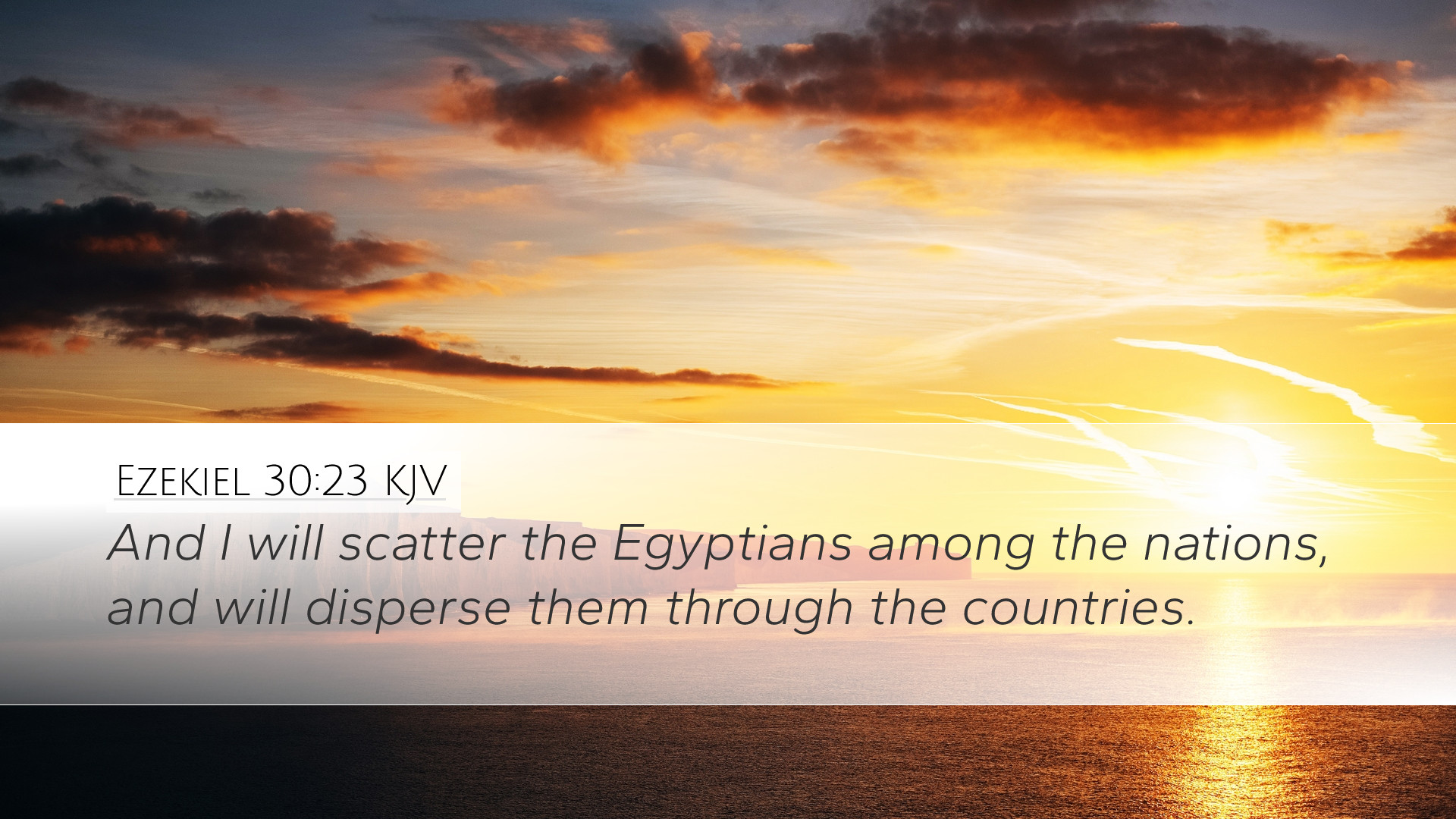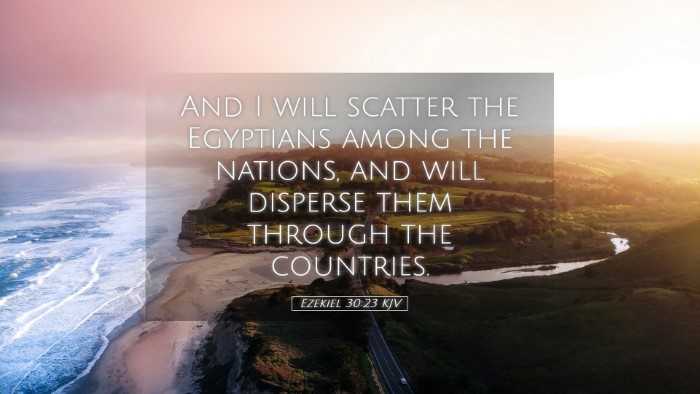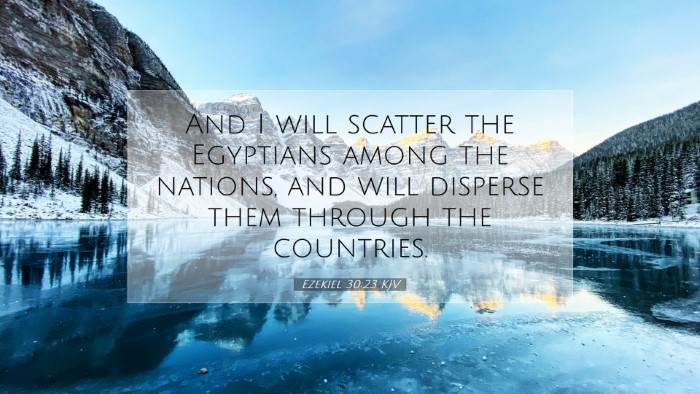Bible Commentary on Ezekiel 30:23
Text of the Verse: "And I will scatter the Egyptians among the nations, and will disperse them through the countries."
Introduction
The prophetic words of Ezekiel carry significant weight, offering insight into God's judgment, mercy, and the intricate relationship between nations and divine sovereignty. In Ezekiel 30:23, we find an articulation of God's impending judgment upon Egypt, a pivotal nation in biblical history. This commentary combines insights from prominent public domain scholars, including Matthew Henry, Albert Barnes, and Adam Clarke, to unpack the depth and implications of this verse.
Contextual Background
The Book of Ezekiel is set against the backdrop of Israel's exile and addresses themes of judgment, restoration, and the sovereignty of God over all nations. This particular verse falls within a section that pronounces judgment against Egypt and other nations, emphasizing that no power can stand against God's will.
Historical Context
- Egypt's Role: Historically, Egypt was a powerful entity in the ancient Near East, often seen as a refuge for Israel during hard times. However, it frequently turned against Yahweh and His purposes.
- Judgment Pronounced: Ezekiel prophesied during a time of great upheaval, when Babylon posed a significant threat to both Israel and Egypt, highlighting the transitory nature of human power compared to divine authority.
Thematic Insights
1. Divine Sovereignty
Ezekiel 30:23 underscores the theme of God’s sovereignty over all nations. Matthew Henry emphasizes that God’s judgments are not restrained by human understanding of power or geography. The scattering of the Egyptians reflects God's control over their future, demonstrating that their might cannot avert His decree.
2. The Consequence of Rebellion
Albert Barnes highlights that the dispersion of Egypt serves as a warning against rebellion. The Egyptians, who often turned their backs on God, are reminded that their rejection leads to severe consequences. This serves as a lesson for all nations about the repercussions of disobedience to divine law.
3. A Broader Vision of Redemption
Adam Clarke observes that while the verse contains a stark pronouncement of judgment, it also implies a larger narrative of potential restoration. The scattering could serve as a precursor to a deeper understanding and eventual return to God’s mercies, reflected in the prophetic vision of hope embedded throughout Scripture.
Theological Implications
1. Exile and the Human Condition
The exile of Egypt mirrors humanity's struggle with sin and separation from God. Clarke signifies this theme by reminding readers that every nation, like every individual, faces a similar fate when walking away from divine truth.
2. Hope Amidst Judgment
While the prophecy speaks of judgment, it does not ultimately lead the faithful into despair. Barnes asserts that God's discipline has a restorative purpose. The call for repentance is woven throughout Ezekiel’s messages, revealing that no one is beyond the reach of divine mercy.
Practical Application
1. Understanding God’s Plan in World Events
This verse invites pastors and theologians to consider the divine perspective in contemporary global issues. As nations rise and fall, the faithful are reminded to trust in God's overarching plan, just as He maintained control during Ezekiel's time.
2. The Necessity of Repentance
Ezekiel 30:23 serves as a poignant reminder for individuals and nations alike to pursue repentance and a return to God. Leaders within congregations should preach the importance of aligning with God's will to avoid the stark consequences reflected in this judgment.
Conclusion
The scattered people of Egypt stand as a testimony of the consequences of rebellion against God. Yet, through the lens of Ezekiel 30:23, we keenly see that God's judgment is infused with the potential for redemption. The duality of divine justice and mercy serves not only to provide insight into historical circumstances but also to inform contemporary understanding, urging modern believers towards faithfulness and repentance.
References to Commentaries
- Matthew Henry: Emphasizes the sovereignty of God in judgment.
- Albert Barnes: Highlights the consequences of rebellion and the need for repentance.
- Adam Clarke: Offers insights into the hope of restoration amid divine judgment.


